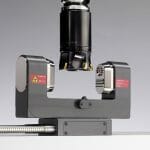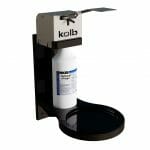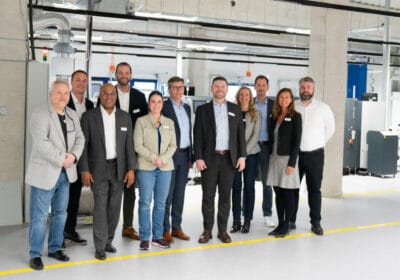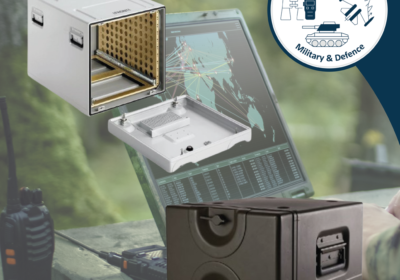- Female engineering entrepreneurs leading the way as first projects funded
Five female entrepreneurs are combining their engineering and business skills in the fight against COVID-19 in sub-Saharan Africa thanks to funding from the Royal Academy of Engineering through its Project CARE (COVID Africa Rapid Entrepreneurs) initiative.
Project CARE is an international collaboration of academic, health and funding bodies in the UK and engineering entrepreneurs in Africa. Just over a month after it started, the programme is already helping local engineers to deliver products and services needed in the fight against COVID-19 in Kenya, Ghana, Nigeria and South Africa.
Project CARE was initiated by the Royal Academy of Engineering in early April as it became clear that the virulence and rapid transmission of COVID-19 could cause widespread infection and loss of life even in countries with robust national healthcare systems like the UK’s. The Academy works extensively with engineers in countries of sub-Saharan Africa, and became concerned that the challenges of COVID-19 could prove extreme in these areas, which have dense urban populations and less well-resourced healthcare.
Project CARE aims to deliver several complementary activities. One of these is to support engineering SMEs in sub-Saharan Africa to temporarily pivot or scale-up their businesses to help address the many challenges of COVID-19.
Around 200 current and past recipients of the Academy’s Africa Prize and Leaders in Innovation Fellowships programmes were invited to apply for funding last month. Some 53 applications were received and eight entrepreneurs, including five women, were successful. Each has received £5,000 to support them in pivoting or scaling up their current business model:
- Catherine Wanjoya – Slimlak Agencies – Kenya
Incinerators to safely dispose of used PPE on-site. - Josephine Marie Godwyll – Lab & Library on Wheels – Ghana
Ananse@Home STEM and art home-schooling app for children aged 8–14. - Chinenye Justin Nwaogwugwu – Macjames Global Resources Limited – Nigeria
Manufacture of MACJAMES ® HandSafe instant hand sanitizer with moisturiser, that meets WHO standards. - Osewe Collince Oluoch – ChanjoPlus – Kenya
USSD platform for real-time contact-tracing and to disseminate health information. - Frida Njogu-Ndongwe – Afyakit – Kenya
Timely, actionable data-driven insights on the readiness of health facilities to provide critical services. - Victor Boyle-Komolafe – GIVO (Garbage In, Value Out) – Nigeria
Production of affordable WHO-standard face shields from recycled PET bottles. - Linah Pununu Maphanga – Farmers Assistant – South Africa
Connecting smallholder farmers with local consumers, repairing informal supply chains. - Aishat Raheem – Farmz2U – Nigeria
Supporting farmers with data-driven insights to increase production and online distribution channels to increase sales.
Further activities are planned to support these individuals in addition to funding.
Dr Hayaatun Sillem, Chief Executive of the Royal Academy of Engineering, said: “The outlook for many African countries is very concerning. Alongside the medical professionals who risk their lives daily to do battle with this virus, engineers have important roles to play in managing and mitigating the impacts of the disease. As with the Academy’s other work in response to the coronavirus outbreak, our goal for Project CARE is to marshal the knowledge and expertise of our Fellows and wider network of engineers to enhance the response to COVID-19, in this case supporting our network of motivated and talented young engineering entrepreneurs in sub-Saharan Africa to apply their skills to the challenge. We do this not just for the immediate benefit of nations in Africa but for the benefit of the global community of engineers, so that together we can develop more efficient and effective ways of helping to tackle this pandemic and build our resilience to future threats.”
The launch of Project CARE is made possible through philanthropic funding, donations of manufacturing equipment and consumables, and the support of teams of volunteers with the appropriate expert knowledge. Additional funding is also being made available from the Academy’s Global Challenges Research Fund allocation. It is hoped that Project CARE will be able to scale up its impact by inviting more manufacturers and other partners to participate and further announcements will be made as plans are implemented.
Ends
Images of all eight entrepreneurs are available to download from here.
Notes for Editors
- This aspect of Project CARE is being supported by the Global Challenges Research Fund (GCRF) which funds interdisciplinary research addressing sustainable development challenges. It allows UK researchers and experts within developing countries to focus on specific challenges such as: clean air, water and sanitation, sustainable livelihoods, human rights and social justice. It is a £1.5bn Department for Business, Energy and Industrial Strategy fund, which forms part of the UK Government’s Official Development Assistance commitment. Delivered by: Academy of Medical Sciences, British Academy, Department for Education Northern Ireland, Higher Education Funding Council for Wales, Royal Academy of Engineering, Royal Society, Scottish Funding Council, UK Research and Innovation and UK Space Agency.
- More about Project CARE: In addition to supporting the eight winners of these latest awards, Project CARE’s complementary areas of activity include:
- supporting engineering entrepreneurs in sub-Saharan Africa to make and supply PPE that can be used effectively in local hospitals and clinics
- leveraging the local know-how gained to encourage and support other groups globally to increase supply of fit-for-purpose PPE.
- Royal Academy of Engineering African engineering entrepreneurs are alumni of its global engineering entrepreneurship programmes, the Africa Prize for Engineering Innovation and Newton Fund Leaders in Innovation Fellowships, more about which can be found here.
- For more information about the Royal Academy of Engineering’s activities in response to coronavirus please see https://www.raeng.org.uk/policy/engineering-response-covid-19-coronavirus and sign up for updates here.
- The Royal Academy of Engineering is harnessing the power of engineering to build a sustainable society and an inclusive economy that works for everyone. In collaboration with our Fellows and partners, we’re growing talent and developing skills for the future, driving innovation and building global partnerships, and influencing policy and engaging the public. Together we’re working to tackle the greatest challenges of our age.
What we do
TALENT & DIVERSITY
- We’re growing talent by training, supporting, mentoring and funding the most talented and creative researchers, innovators and leaders from across the engineering profession.
- We’re developing skills for the future by identifying the challenges of an ever-changing world and developing the skills and approaches we need to build a resilient and diverse engineering profession.
INNOVATION
- We’re driving innovation by investing in some of the country’s most creative and exciting engineering ideas and businesses.
- We’re building global partnerships that bring the world’s best engineers from industry, entrepreneurship and academia together to collaborate on creative innovations that address the greatest global challenges of our age.
POLICY & ENGAGEMENT
- We’re influencing policy through the National Engineering Policy Centre – providing independent expert support to policymakers on issues of importance.
- We’re engaging the public by opening their eyes to the wonders of engineering and inspiring young people to become the next generation of engineers.
For more information please contact: Pippa Cox at the Royal Academy of Engineering Tel. 020 7766 0745; email: [email protected]







